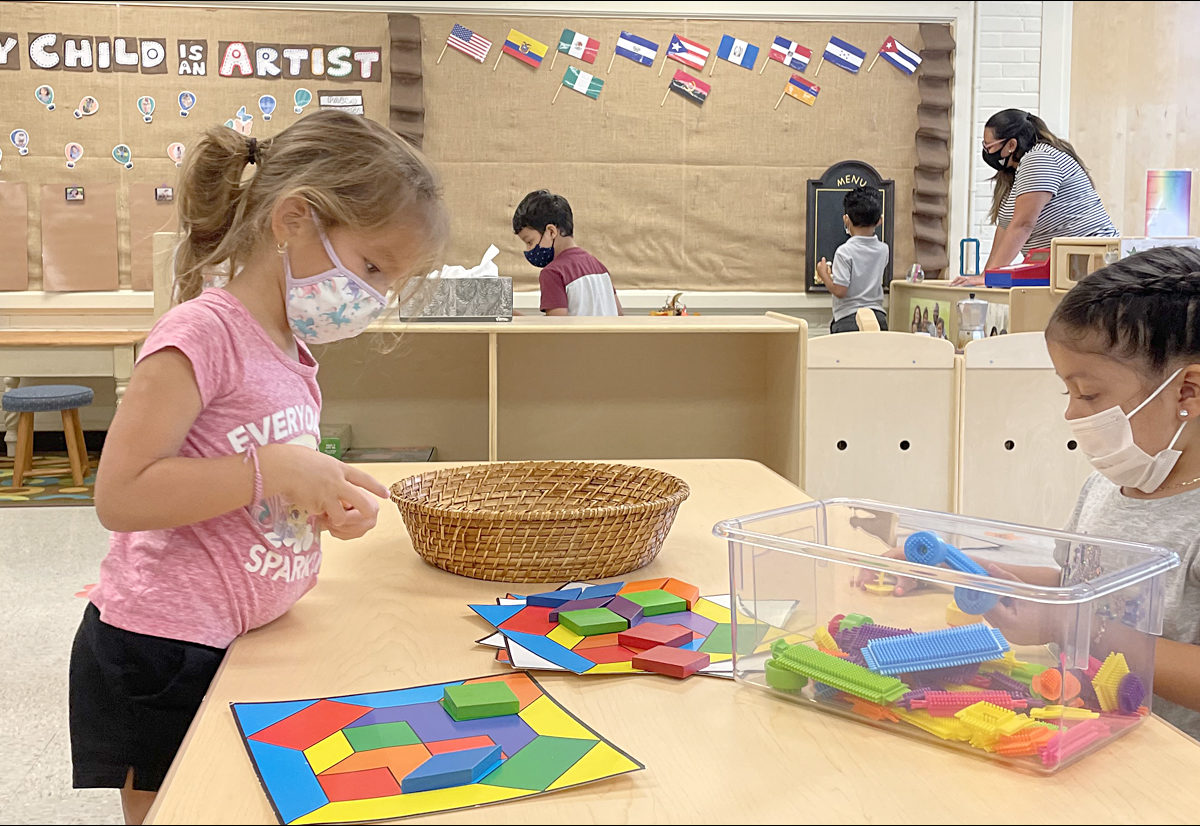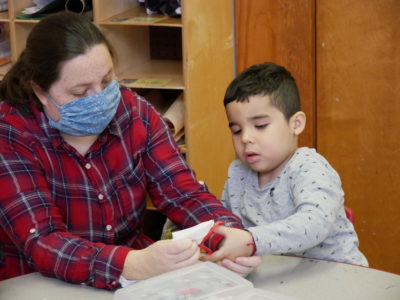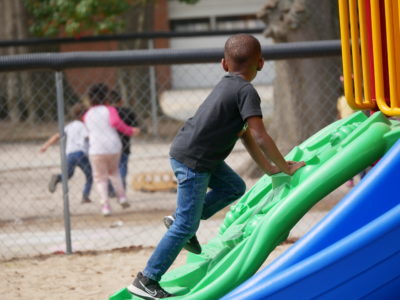
A recent study, capturing the attention of early childhood education advocates and naysayers alike, found that a randomized group of students who attended free, public pre-kindergarten programs in Tennessee were performing worse than their peers who mostly did not attend pre-K.
As the executive director of Charlotte Bilingual Preschool (CltBP), a dual-language multicultural preschool that offers publicly funded pre-kindergarten programs, I urge us to embrace that the effectiveness of pre-K cannot be measured by accessibility alone. It must be measured by the fullness and quality of the pre-K program.
Publicly funded pre-K in the state of North Carolina is proven to be an effective early childhood education (ECE) program. Children perform significantly better on some language and literacy skills at the end of pre-K compared to those who did not attend NC Pre-K.
Funded by Smart Start of Mecklenburg County, MECK Pre-K, and other public and private funders, CltBP, the only 5-star dual-language early childhood program in North Carolina, is seeing incredible results among students and graduates. Our experiences and research tells us that early childhood education is extremely effective when it engages students’ families, builds on linguistic and cultural strengths, and facilitates play, exploration, and meaningful social interactions in the classroom.
Our children excel because we hire trained and certified dual-language early childhood teachers and teaching assistants, provide culturally relevant instruction and environments, and design purposeful family programs for members of their households.
A new study, Reading and Mathematics Elementary School Performance of Spanish-speaking Children Matriculating from a Bilingual Preschool, by researchers at the University of South Carolina and UNC-Charlotte who evaluated standardized test scores and grade-level tests, found that our students outperform their Hispanic peers in math and reading upon entering kindergarten and through second grade. Students who attended CltBP were largely from households where Spanish is the primary language and where families experience economic marginalization. In comparison, non-CltBP students were from diverse linguistic and socioeconomic backgrounds.
Even in the midst of the pandemic during the 2020-2021 school year when children’s performance decreased across many communities, CltBP students saw gains. The percentage of CltBP students meeting or exceeding developmental expectations for their age across social-emotional, physical, cognitive, language, and literacy domains increased from 7% at the beginning of the school year to 94% at the end of the year. Children’s gains were observable in the classroom, outside of school, and from multiple perspectives. Students showed significant growth over the year and met or exceeded goals in almost all subjects. Our collective research shows that our pre-K students are entering elementary school prepared to succeed and close the achievement gap between students from lower and higher-income households.
Our pre-K program serves to not only mature children academically, but socially. Our Family Programs team works to create relationships with our students’ families that form the basis of a mutually enriching community. By participating in programming designed in collaboration with families and our program team, families grow and gain the knowledge and skills they need to directly support their children’s education. We offer regular and informal “family cafés” that cover important topics to support student learning. Families participate in ESL instruction to enhance language skills needed to navigate their children’s educational journey. Families also engage with our home visiting program that provides the opportunity to learn and be mentored in the safety and comfort of one’s own home.
Preschool family members who are interested in contributing to the field of early childhood education by way of a career receive workforce development opportunities through a partnership between our preschool, Central Piedmont Community College, and UNC-Charlotte. The educational program offers training and certification for family members to become dual-language early childhood teachers. Many of those family members pour back into our schools as teaching assistants and lead teachers, contributing to a continuous learning community. Family members regularly share feedback with our team about the positive impact that these additional resources make to help them more deeply support their child’s learning, develop their own resilience, and thrive.
North Carolina is prioritizing pre-K through effective traditional and specialized programs like that at CltBP, and we must stay the course. With the success we are seeing, we should offer even more publicly-funded dual-language and alternative pre-K programs that prepare our future leaders for learning and life. Additional investments are needed to ensure that every child has access to an early learning program that meets their individual needs.
I appreciate the research and insights of the study in Tennessee and welcome data that helps us to further identify what works in early childhood education. I urge us to advocate for more high-quality pre-K programs – not fewer – that provide developmentally appropriate opportunities for play and exploration, flexibility for teachers to adapt to the unique strengths and challenges of their students and families, opportunities to engage families in their children’s education, and trust between school and families. We should also give attention to elementary school models, ensuring that they build upon pre-K and offer high-quality learning environments. Let us ensure our school systems, from pre-K onwards, set the stage for children to excel in school and life five, 10, and 15 years down the road.
Recommended reading



